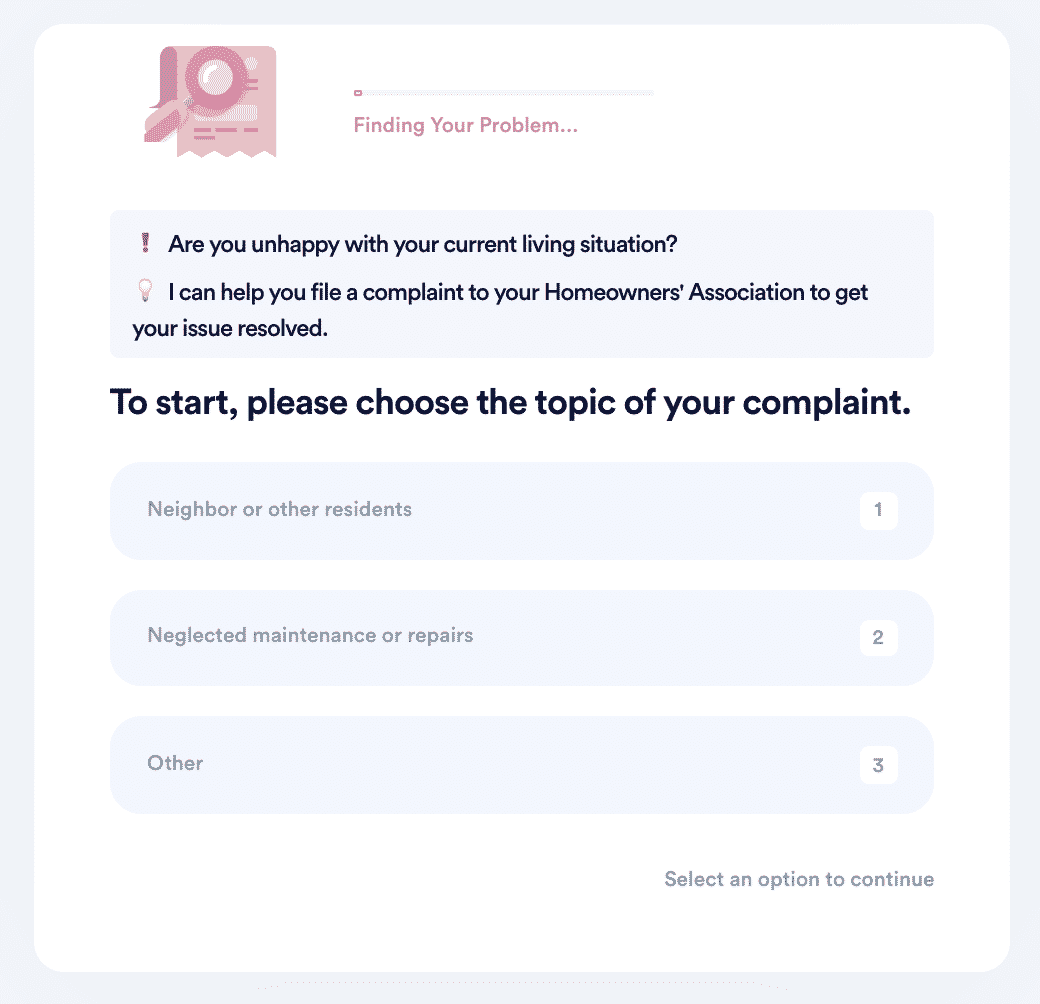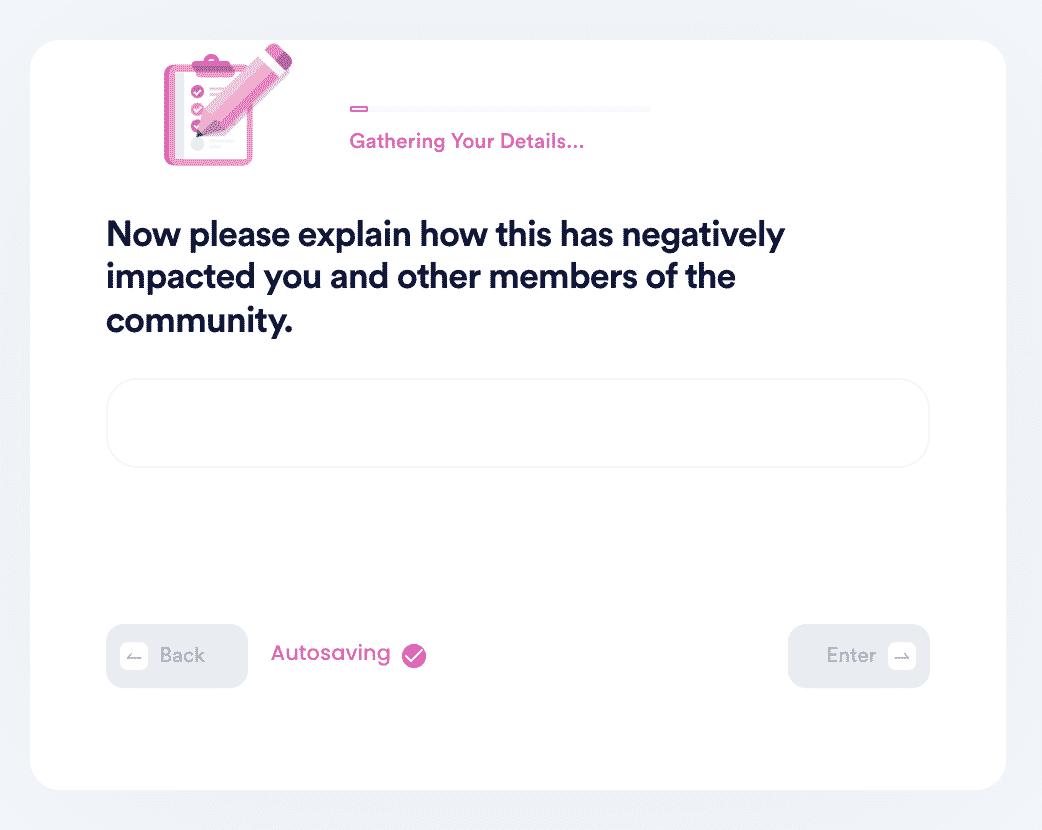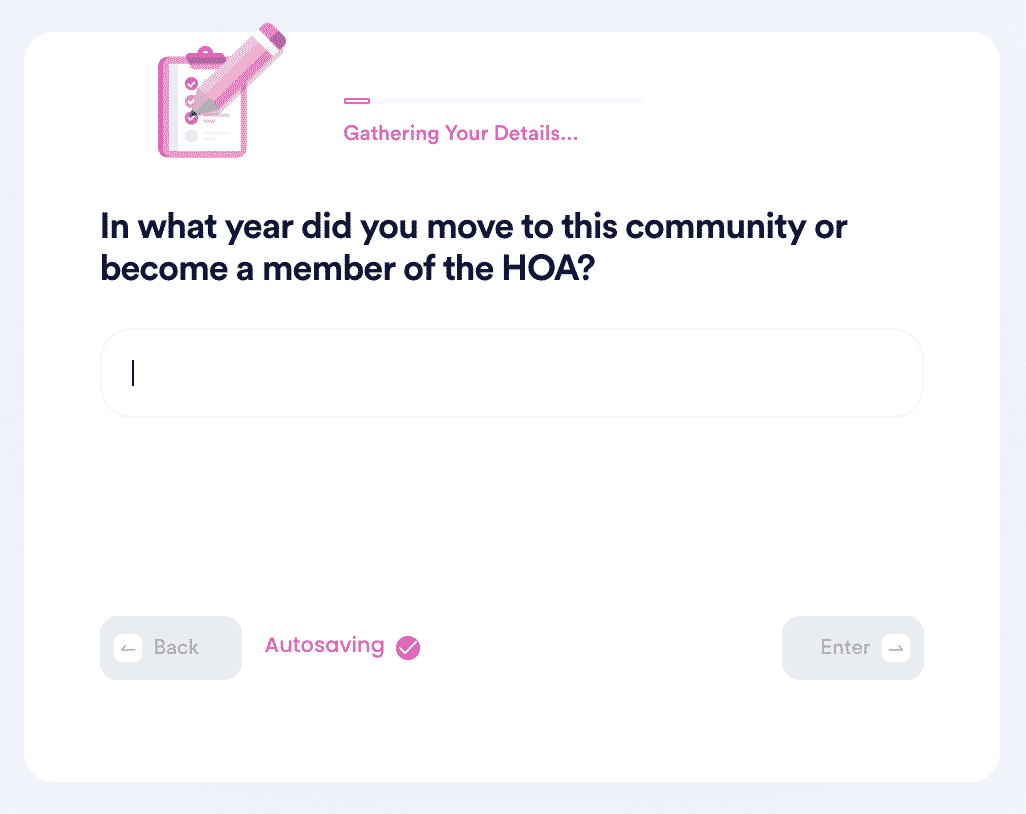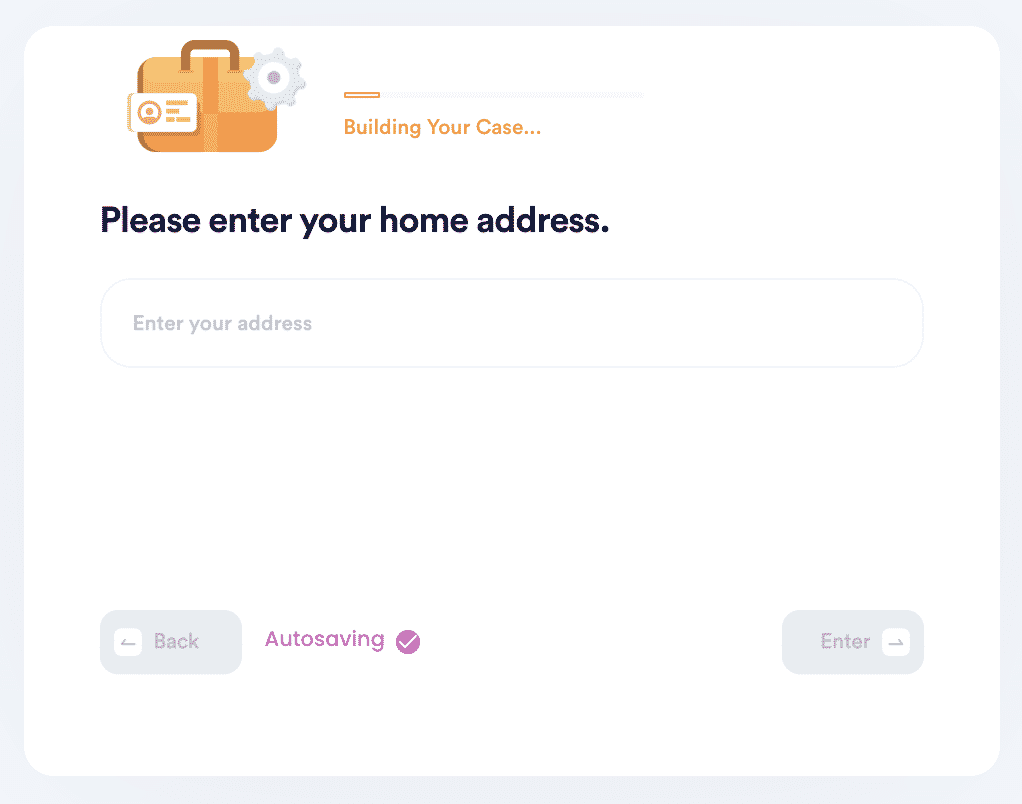Can I Fight My HOA for Not Opening the Pool? Yes, Here's How
Assuming you love your home and the amenities that come with living there. But when you want to take a dip in summer, you find out the pool is locked by your HOA. Consequently, you're disappointed and start asking yourself: ?
The answer is yes! DoNotPay will guide you through the steps to get your community pool functioning again. We shall explain more about this in this article and your options if the HOA doesn't open the pool
Common HOA Violations Against Homeowners
Homeowners Associations are governed by rules and regulations called the CC&Rs, (Declaration of Covenants, Conditions, and Restrictions). If you're considering buying a home in an HOA, read the CC&Rs to see what you're getting into. If you break the rules, you might find yourself in trouble due to the following reasons:
- Not maintaining the property - Homeowners are required to maintain the property in good condition, including the landscaping, painting, and repairs.
- Not following the HOA's rules and regulations - Every HOA has a set of rules and regulations that all homeowners must follow. These rules are typically designed to keep the community running smoothly and may cover the following:
- noise levels
- pet restrictions
- parking
- Not paying HOA dues - This is the most common violation against homeowners. Homeowners need to pay monthly or annual dues to the HOA to help cover the costs of maintaining the community. There may be penalties for paying fees late.
- Refusing to allow access to the property for inspections or repairs - The HOA may need to enter your home for inspections or repairs from time to time. Homeowners must grant access when requested.
- Failing to get approval before making changes to the property - Homeowners must get permission from the HOA before making any changes to their property, such as painting, adding a fence, or making any other modification.
- Creating a nuisance - This can be anything from playing loud music to having too many visitors at your home. The HOA will fine or even evict you from your home if you create a problem.
- Damaging property - This includes things like vandalism or graffiti. The board will charge you or even ask you to move out of the community.
- Failing to maintain your home - This includes things like letting your lawn grow too lengthy or not repairing damaged gutters. If you fail to preserve your home, you can be fined or even have a lien placed on your home.
- Parking violations- Most HOAs have rules about where and how homeowners can park their vehicles. It can include prohibiting street parking or requiring residents to only park cars in designated areas.
How Much Can the HOA Fine Me?
The HOA board decides how much a fine will cost and whether it is fair. The type of violation will also determine your charges. Most HOA penalties start at around $25 and go up to $50, $100, and $200 if you don't pay or keep breaking the law.
If you feel that the fine is unreasonable, you can file a complaint.
How Can I Fight HOA Fines?
Often, CC&Rs will detail the procedure for filing disputes. They may even specify when and where fines and penalties will be levied.
Without reading through CC&Rs, you won't know whether your neighbor has been fined $25 for not raking his lawn or if he's been slapped with a $250 fine for having an unpermitted barbecue grill in his backyard.
How to Approach the Pool Issue By Yourself
You can take actionable efforts to fix the pool issue by doing the following:
| Complaining to the board of directors. | Formalize your approach by meeting with the management to discuss the issue.
Make the board understand why you want them to open the pool if there is a legitimate explanation for the HOA's failure to open the pool. e.g., due to COVID 19, try to complain in a better tone. For instance, tell them your children's next swimming competition is coming up, and they need the pool to practice with parental supervision. This way, they may provide you with a timeframe for when they will open the pool. |
| Fight the HOA for negligence or breach of fiduciary duty, among other theories. | You may have brought up the issues with one or more HOA board members, but they neglected to address them fully. |
Regardless, the board should take note of your concerns and address the issues. If not, learning more about the HOA's rules regarding common areas like pools may help you decide what additional steps you might want to take.
How Can I Fight My HOA for Not Opening the Pool With the Help of DoNotPay?
Many homeowners either misunderstand their rights or don't fully grasp the role of their association. That's why we have DoNotPay, your leading problem-solver in anything! We have helped thousands of homeowners avoid over $15 million worth of fines, late fees and more. We also educate homeowners on the ins and outs of HOA laws, with the ultimate goal of empowering them within their association.
So if you're wondering how to fight your HOA against a pool disagreement, take these steps:
- Choose and describe the nature of your complaint (neighbors, maintenance, etc).

- Explain how this problem has negatively affected you and how you want the HOA to address the problem.

- Tell us how long you've been a member of this HOA.

- Confirm your home address so we can generate a demand letter on your behalf!

Condo associations have immunity from lawsuits unless they waive them or grant an exception. So you need to understand the laws that protect you as a homeowner. Just log onto DoNotPay to get answers to your questions.
If you are not satisfied with the response form the HOA board, or they don’t respond at all, DoNotPay can help you send a demand letter.
What Else Can DoNotPay Do?
DoNotPay will also solve the following issues for you:
- Sex offender search
- Neighbor complaints
- Insurance claims
- Bill payments
- Open a lawsuit


